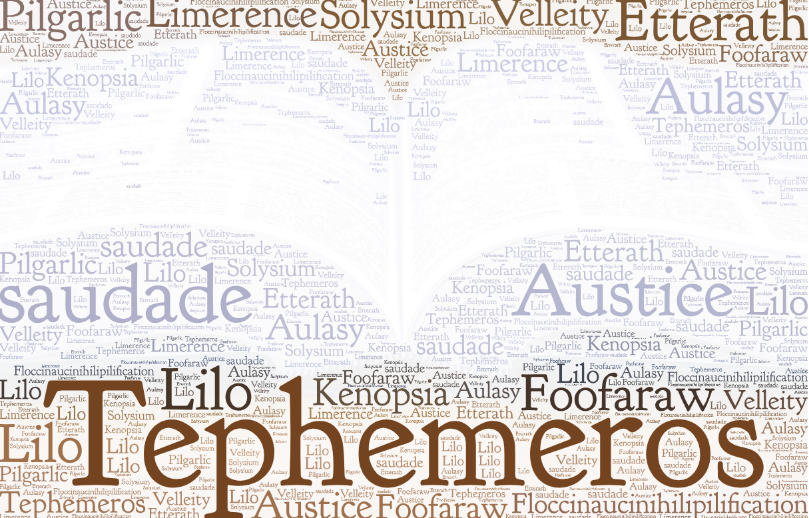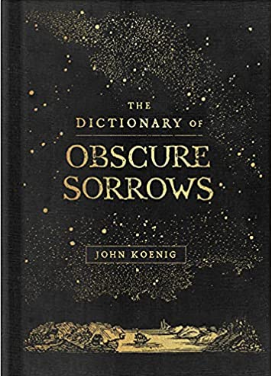
Sometimes what comes out of our imaginations can seem truer than the accurate words the dictionary knows or the facts we’ve held about our lives.
When a word, play, or story speaks directly to our experience, it can feel real.
I thought about this when I heard a quote at the beginning of the film, tick, tick… BOOM!, the recently released autobiographical musical about a period in the life of Jonathan Larson, the composer of the Broadway superhit Rent.
(I loved the film so much that I’m ready to watch it again, but more on that below!)
The narrator announces:
“Everything you are about to see is true. Except for the parts that Jonathan made up.”
I loved that. Ditto for my life. When I’m writing memoir, I should caveat: “Everything about my life is real, except for the stories I make up.”
It’s one thing to deliberately falsify facts. Not a good idea. That constricts life.
It’s another thing to let our imagination out to play and let it expand our reality.
Here’s a simple example

This week, I read excerpts from the new book Dictionary of Obscure Sorrows. The author, John Koenig, describes experiences that we can recognize, but for which there are no words. For these, he invents the needed words.
Because the made-up words are tied to such vivid experiences, I wanted to keep them. Who cares that Merriam Webster hasn’t heard them, yet? I’m ready to use them now.
A little experiment:
Read the list below and check the words that sound real to you. (For bonus points, pick out the words you want to use even if you think they aren’t real.)
- Limerence. The state of being infatuated or obsessed with another person.________
- Lilo. A friendship that can lie dormant for years only to pick right back up instantly, as if no time had passed since you last saw each other.________
- Velleity. A wish or inclination not strong enough to lead to action. ________
- Floccinaucinihilipilification. The action or habit of estimating something as worthless. ________
- Solysium. A kind of delirium arising from spending too much time by yourself. ________
- Kenopsia. The eerie, echoey feeling of a busy place, such as a shopping mall or downtown boulevard, when it is suddenly emptied of people. ________
- Pilgarlic. A person regarded with mild or pretended contempt or pity. ________
- Etterath The feeling of emptiness after a long and arduous process is finally complete that leaves you feeling relieved but missing a sense of mission. ________
- Aulasy. The sadness that there’s no way to convey a meaning to people who weren’t there at the time. ________
- Foofaraw. A great deal of fuss or attention given to a minor matter. ________
- Austice. A wistful omen of the first sign of autumn—a subtle coolness in the shadows, a rustling of dead leaves abandoned on the sidewalk. ________
- Saudade. A deep emotional state of melancholic longing for a person or thing that is absent. ________
Now for the answers:
Words number 1,3,4,7,10, and 12 you’ll find in a regular dictionary.
Koenig made up words numbers 2,5,6,8,9, and 11.
This is where I hope that imagination will soon infuse reality. Koenig’s words expand how I look at life. (Can’t wait to read the whole book.)
Back to the Movie

I wasn’t worried about whether everything shown in tick, tick…BOOM! was based on a fact, even though the musical claimed to be autobiographical.
The truth that surfaced from the portrayal of Jonathan’s world was so vivid, it didn’t require that every detail of his story be true. Imagination was given a hand in shaping his story.
I identified with Jonathan’s struggles, even though, at my age, my life is way different than that of an over-amped, almost-thirty genius composer trying to realize his artistic dreams. The movie shows Jonathan in his late twenties as he struggles to finish Superbia, a musical he has worked on for eight years. Bursting with excitement, he presents it to a group of Broadway insiders. Their response is enthusiastic, even raving, but no producer picks it up.
Devastating.
Tick, tick. Is it worth continuing? Is it time to settle?
Tick, tick. Friends are dying from AIDs.
Tick, tick. He returns to the piano and starts on a new piece.
We know, (even though this part of his history is not part of the movie), that five years later, at 35, Jonathan will create the smash Broadway hit Rent. He fulfills his creative dreams and earns his place among Broadway legends. Tragically, he dies the night before Rent opens on Broadway and won’t see the Pulitizer or Emmies the play wins.
I left the movie sad, yet inspired that his ticking clock inspired him to follow his dreams.
For some of us, tick, tick can be the sound of a voice within urging us to keep trying even though we may never finish what we set out to do.
Tick, tick tells us it’s never too late, whether we’re 30 or 70.
Tick, tick tells us to accept our disappointments, acknowledge what didn’t work out, and keep moving ahead.
Tick, tick tells me to acknowledge the slim odds that a publisher will want to publish my book–and continue writing.
Tick, tick calls us to embrace the life of the imagination. To rise above “reality” in service to what we know matters most.
I need a new word
Where’s Koenig when I need him? I want a word that speaks to the experience of life moving us ahead towards our dreams, even when we have to weather disappointments.
Here’s my shot at it:
Tephēmeros, the knowledge that today may be the last day your heart will tick, but you decide to keep creating anyway.









